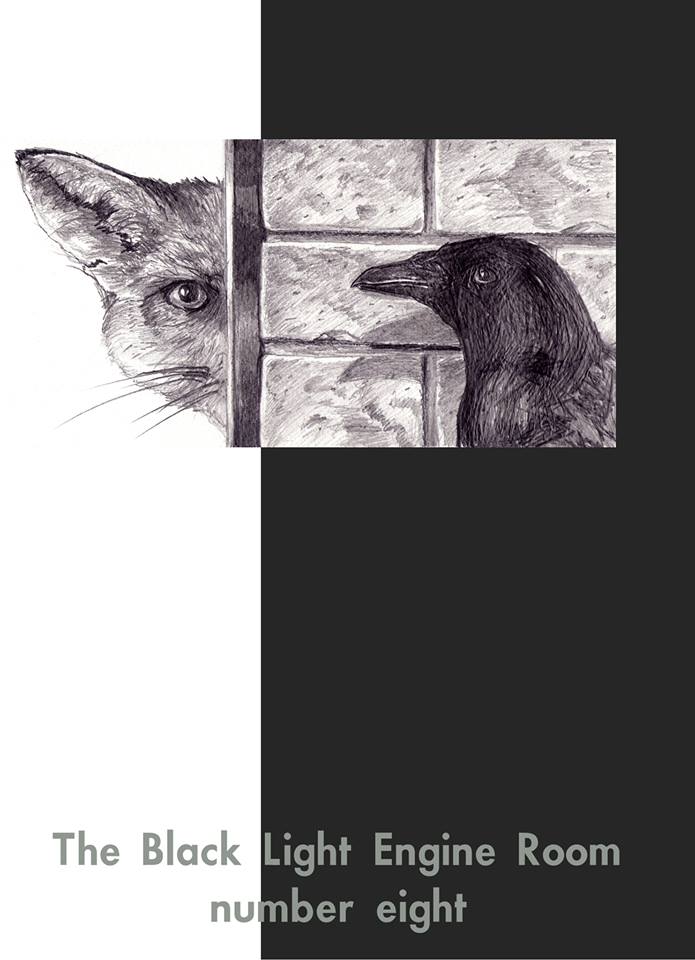Sparkbright #4
-Reviewed by Alex Campbell-
The cover art of Sparkbright issue 4 (courtesy of Julia Spiese) is quirky and imaginative – even if the combination of goldfish and lightbulb personally gives me a wholly false impression that this issue is going to be about the transitory nature of memory – and suggests that the magazine’s contents are going to be equally original and whimsical.
The contents of the issue are something of a mixed bag. There are times when the youth and relative inexperience of the contributors begins to tell, particularly with regards to form and structure, such as when Kate Bergen’s evocative imagery of a pianist’s fingers dripping with sonatas is marred by a slightly clumsily constructed villanelle. Her abandonment of the more usual iambic pentameter in favour of a looser rhythm does not lend the piece as natural a flow as the subject matter deserves, and necessary adherence to the strict rhyme scheme means that some phrases are twisted and ungainly, such as in “Across the silence of my morning heart they quiver.”, which, sadly, is one of the repeated lines.
At other times the poet is so focussed on the structure that they allow it to dictate the content of the piece, such as in The Tangled Web We Weave, by Martin Broad (which, incidentally has nothing to do with lies or deception, so one is forced to wonder why exactly that title was considered relevant). Whilst Broad has clearly mastered scansion, lines like “Slow-burning is the pot that’s watched,” seems like a contrived way of ending the line with the appropriate rhyme, without thought to what is actually being said.
Conversation With My Veins, on the other hand, by Chloe Waterford, forgoes structure altogether, but whilst this gives a certain liberty to express ideas unconstrained, the final piece is a rambling, formless mass, rather more like a brainstorming session; the preparatory sketches, rather than the finished canvass.
Admittedly, the converse would have been much worse – perfectly constructed forms, without a single original idea or experimental thought expressed within. But it does seem to be the case that a lot of these young writers are more focussed on the look and the sound of the poem than its emotional honesty. It feels like they are trying to be clever, rather than trying to be themselves, and it is the lack of an individual voice, rather than lack of ideas, which is predominantly the sticking point for those pieces that don’t immediately grab you.
As to the prose, Dylan Luloff’s Going, and the opening piece, The End of the World, by Lili Leader, read more like they should be poetry rather than prose. They don’t seem to have a driving narrative force behind them. There is no progression; they just describe single moments, and while they do that well, they perhaps miss out on the nuances of flash fiction as a result. By contrast, stories like One Man’s Heaven, by Jessica Dall, or Jason E. Castro’s The Born Loser, are interesting concepts, and while they aren’t badly executed, again, there isn’t much individuality of style, or anything which really makes these stories stand out the way they should.
That said, many of the writers show real promise, and there are one or two gems that do stand out for me. iDrew’s iAmbient is a love song for the digital age, sprinkled liberally with the ubiquitous lower-case i, but not in a way that detracts from the poem, or feels too gimmicky. If anything, the understated elegance of the “i” compliments the quiet lyricism of lines like “…i collected all the passion laced / expired breaths / tokens / for the dream archive / in the cupboard…”: in short, ee cummings meets ipod.
Seduction, by Joe Dresner is a good example of fitting form to purpose, and not the other way round. The poem, arranged on the page to suggest the shape of the stairs, doesn’t waste time with elaborate ways of overstating the case, it instead relies on honesty and clarity to express itself, and its simplicity speaks volumes.
Raindrop Baby (Michael Lee Johnson) and Hey You in the Rain (Luigi Monteferrante), are both short, but punchy and to the point, and slightly reminiscent of the Beat Poets of the fifties. There is an energy to both of them, and each has a distinct voice.
On the prose side of things, Daniel Davis’ It Slips Through Your Fingers Like Rainwater in Jakarta, could perhaps do with a shorter title, but the absurd and wonderful premise of the story is backed up by a prose style so understated it gets away with it, and keeps the reader engaged when it might otherwise have been difficult to suspend belief.
Overall, while this is a very mixed collection, there is enough raw talent in Sparkbright that, with a little more polish, it could shine very brightly indeed. I look forward to seeing what some of these artists produce as they mature more, and find their voices. Roll on edition 5.



Thanks so much for this review! Our next issue is out tomorrow, so we hope you enjoy it. This is the first review we’ve had, so we’re very pleased. Thank you!
-Emily (editor of Sparkbright)
Pingback: Welcome to 2011! « Sparkbright